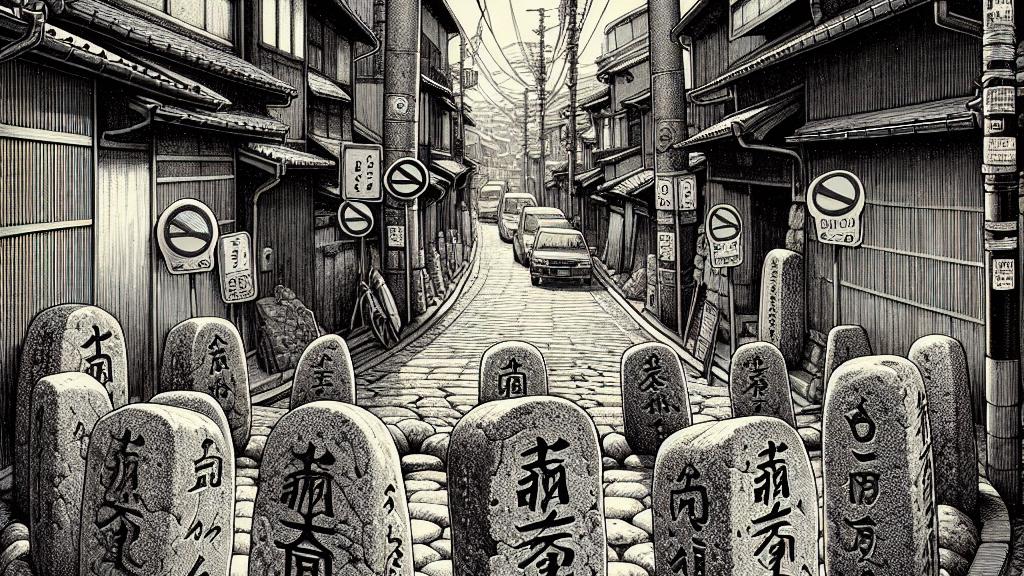Why 'Ikezu Stone' is the Ultimate Defense Against Unwanted Intrusions!
Overview
- Ikezu stones are strategically placed in Kyoto to protect properties from vehicle damage.
- This cultural tradition has roots in the Heian period, reflecting local customs and values.
- Functioning as polite warnings, ikezu stones symbolize community respect for private property.

Understanding Ikezu Stones in Kyoto
In the historic city of Kyoto, ikezu stones have become a familiar sight at the corners of residential streets and properties. These unique stone markers function primarily as protective barriers, designed to prevent encroachment from vehicles navigating the city’s narrow and winding roads. The use of ikezu stones extends beyond mere functionality; it embodies a cultural philosophy that values indirect communication. By placing these stones, residents convey a message of 'please do not enter' without the need for confrontation. This practice harmonizes with Kyoto's longstanding tradition of maintaining social harmony and demonstrates a creative solution to the challenges posed by dense urban living.
Cultural and Historical Significance
The tradition of ikezu stones can be traced back to the Heian period, when Kyoto was Japan’s imperial capital. Initially, these stones served not only practical purposes but also reflected the social dynamics of the time. The term 'ikezu,' which conveys meanings of 'unkind' or 'mean' in the local dialect, suggests a unique blend of cultural expression and self-preservation. This etymology highlights the delicate balance Kyoto residents maintain between protecting their property and being considerate of their neighbors. The cultural nuance of indirectness in communication is exemplified in how these stones are employed, allowing residents to assert boundaries gently while encouraging mutual respect in the community, showcasing the rich tapestry of Kyoto’s urban identity.
Impact and Similar Practices Beyond Kyoto
While ikezu stones are emblematic of Kyoto, similar practices have emerged in various regions across Japan, emphasizing a shared concern for property safety among urban dwellers. For instance, cities like 富田林 display stones akin to ikezu that serve protective functions in tight residential areas. These cultural artifacts illustrate an ingrained collective responsibility fostered within communities to safeguard shared spaces. The enduring relevance of ikezu stones not only reflects practical solutions to modern urban challenges but also exemplifies how traditional customs resonate within contemporary society. As communities adapt to changing environments, the ikesu stone's role as a symbol of respect and caution persists, underscoring the importance of cultural continuity in an evolving world.

Loading...